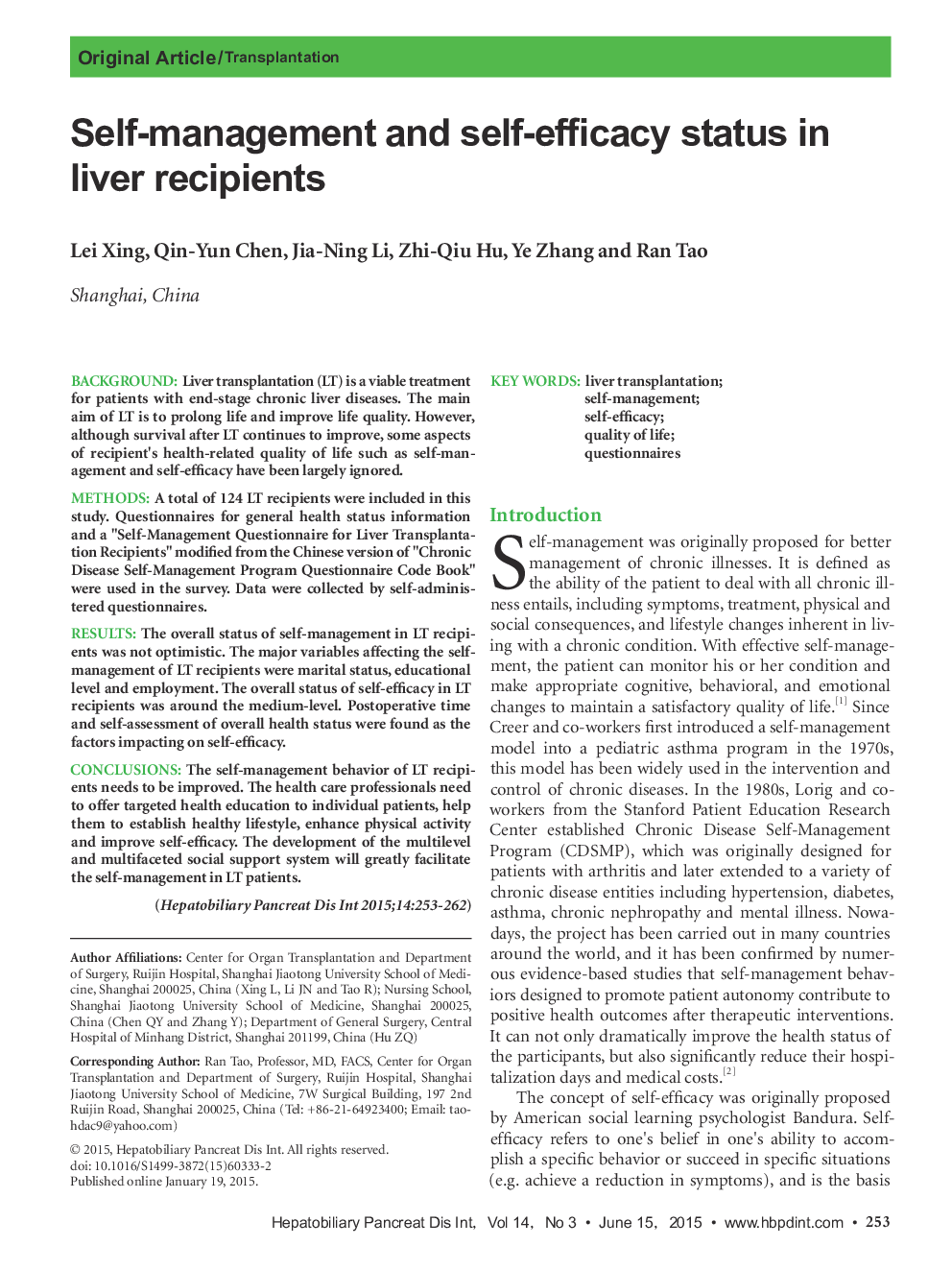| Article ID | Journal | Published Year | Pages | File Type |
|---|---|---|---|---|
| 3337231 | Hepatobiliary & Pancreatic Diseases International | 2015 | 10 Pages |
BackgroundLiver transplantation (LT) is a viable treatment for patients with end-stage chronic liver diseases. The main aim of LT is to prolong life and improve life quality. However, although survival after LT continues to improve, some aspects of recipient's health-related quality of life such as self-management and self-efficacy have been largely ignored.MethodsA total of 124 LT recipients were included in this study. Questionnaires for general health status information and a “Self-Management Questionnaire for Liver Transplantation Recipients” modified from the Chinese version of “Chronic Disease Self-Management Program Questionnaire Code Book” were used in the survey. Data were collected by self-administered questionnaires.ResultsThe overall status of self-management in LT recipients was not optimistic. The major variables affecting the self-management of LT recipients were marital status, educational level and employment. The overall status of self-efficacy in LT recipients was around the medium-level. Postoperative time and self-assessment of overall health status were found as the factors impacting on self-efficacy.ConclusionsThe self-management behavior of LT recipients needs to be improved. The health care professionals need to offer targeted health education to individual patients, help them to establish healthy lifestyle, enhance physical activity and improve self-efficacy. The development of the multilevel and multifaceted social support system will greatly facilitate the self-management in LT patients.
